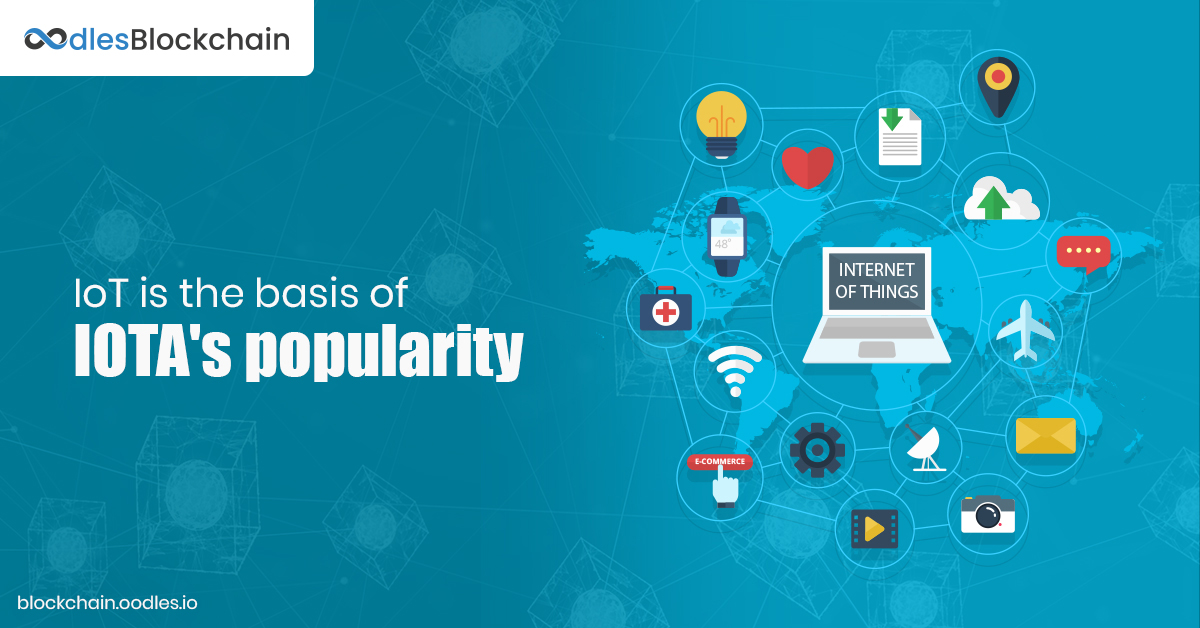-
IOTA describes itself as a “Permissionless Distributed Ledger for a new Economy”. The technology is directed towards integrating the Internet of Things(IoT) and Web 3.0 with the human-induced financial ecosystem to create a mechanized or automated economy. IOTA Distributed Ledger technology introduces itself as ‘Permissionless' because it is promising a decentralization, unlike Blockchain. IOTA poses the existing Blockchain as being hit “with sluggish transaction times and skyrocketing fees”. It is true that parts of blockchain are being centralized and the strongest authority has shifted to a handful of players in the system. This is also the reason for independent technologies and altcoins mushrooming in the decentralized cyberspace. IOTA Distributed Ledger is another significant evolution in this landscape.
Tangle's Tango with Tech Giants
Per the latest reports, around 7 billion IoT devices, excluding smartphones, laptops, and tablets, are in use. While the number of connected devices soared up to 17 billion. With the growing landscape of the internet and interactive devices, IoT is the major technology trend. On the other hand, as a revolution in the cyberspace, distributed ledger technology was bound to converse with IoT. Against this backdrop, IOTA Distributed Ledger development came up as a strong competitor of established cryptocurrency in the market because of its technical viability. IOTA has been partnering with technology providers one after another. Its most relevant cooperation include those with Bosch, Volkswagen, and Fujitsu. Such partnerships are securing technology as an upcoming trend in the blockchain scenario. Top manufacturers are adopting Tangle, the underlying technology behind IOTA, as they are evaluating it as the appropriate distributed ledger technology development fitting into their needs. In parallel, such partnerships are materializing as technology amenities and upgrades in the consumer world.
Adoption of IOTA Distributed Ledger
For instance, an IOTA based electric car smart charging station was established in the Netherlands in April. It is developed in partnership with ElaadNL, a Netherland based electric car charger company. Per Onoph Caron, the company's managing director, the charger has “the ability of using real machine to machine communications and micropayments, with the use of IOTA as a secured layer for these payments and data. Caron believes “DLT-technology might become a widespread thing in the near future”. Diverse verticals are adopting IOTA as communication, distribution, and data security infrastructure. Bosch is using IOTA Tangle in its new sensor the Cross Domain Development Kit, which is expected to take machine-to-machine communication in automation to a new level. While Volkswagen is using the technology to secure information transfer from vehicles to vehicles on road. The technology hit sectors such as Biometrics, Data Storage, Identity Management, Micropayment and even verticals like waste management and Clean Energy. IOTA grew as a strong and reliable cryptocurrency. It has the potential to become a public utility in coming times.
Prospects of IOTA Distributed Ledger
Owing to the current landscape of data proprietorship Bosch rightly mentioned that “Data is limited to the control of a few entities and are not available to the broad masses”. Decentralization came up as an effective way to neutralize this condition as Bosch commented that “IOTA presents a counterpart to the status quo with their Data Marketplace”. Thus technology such as IOTA, as an open decentralized distributed ledger is sure to gain adoption in upcoming times. Elimination of transaction cost and processing time reduction are the major advantages of IOTA. This two aspects grew as the increasing criticalities of Blockchain technology. Now IOTA's Tangle is providing a strong alternative to the blockchain. However, it does not mean that there is no skepticism about it. Every technology promises massive impacts in the real world. In fact, the effects they produce as innovations, both short-lived and the enduring ones, comprise the overall impacts that matter in the real world. IOTA is on the process of securing its future partnering with tech giants. This approach is useful because integration to new tech applications will not let Tangle to become a redundant technology anytime in near future. Above all, IOTA being adopted only because it is offering the most effective alternative to be in tandem with the futuristic and inevitable technology such as IoT.

Our Offices
INDIA
Emaar Digital Greens, Sector 61,
Gurugram, Haryana
122011.
Welldone Tech Park,
Sector 48, Sohna road,
Gurugram, Haryana
122018.
















